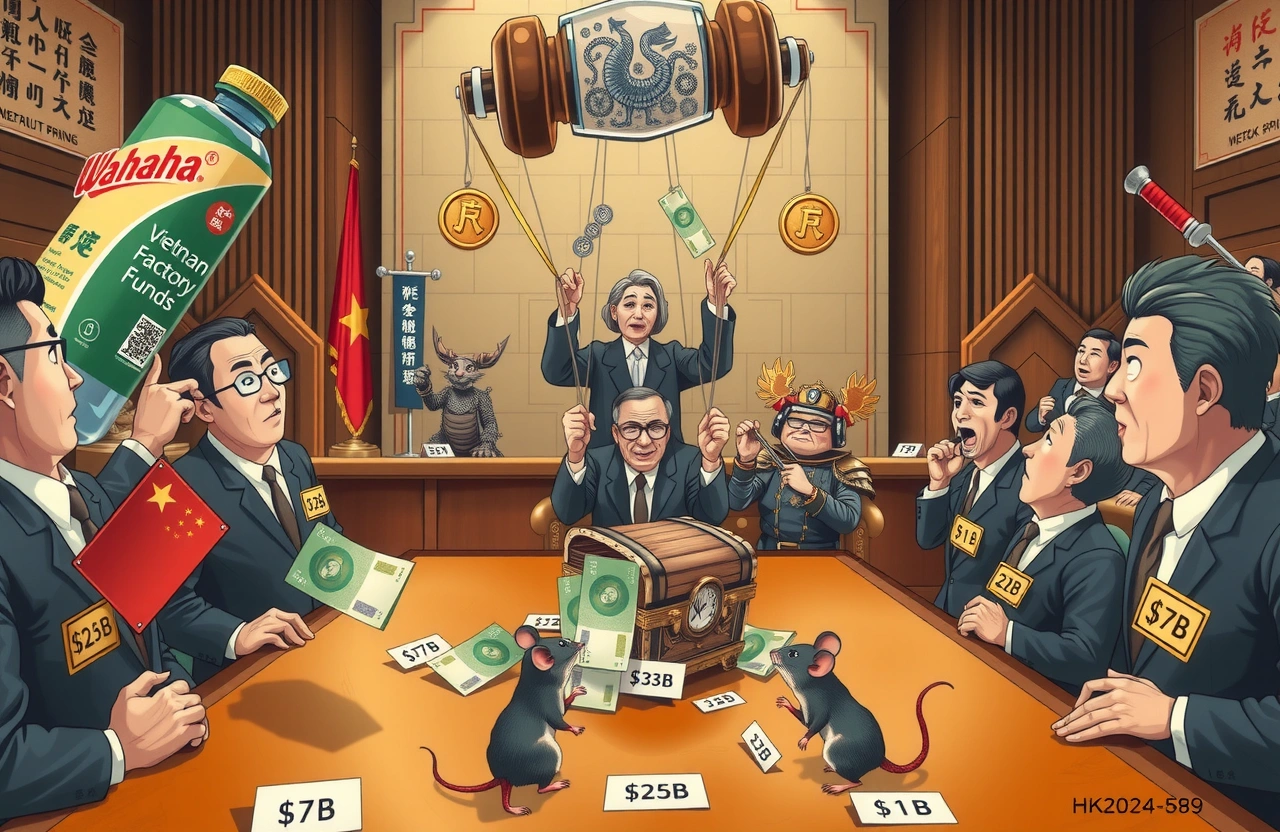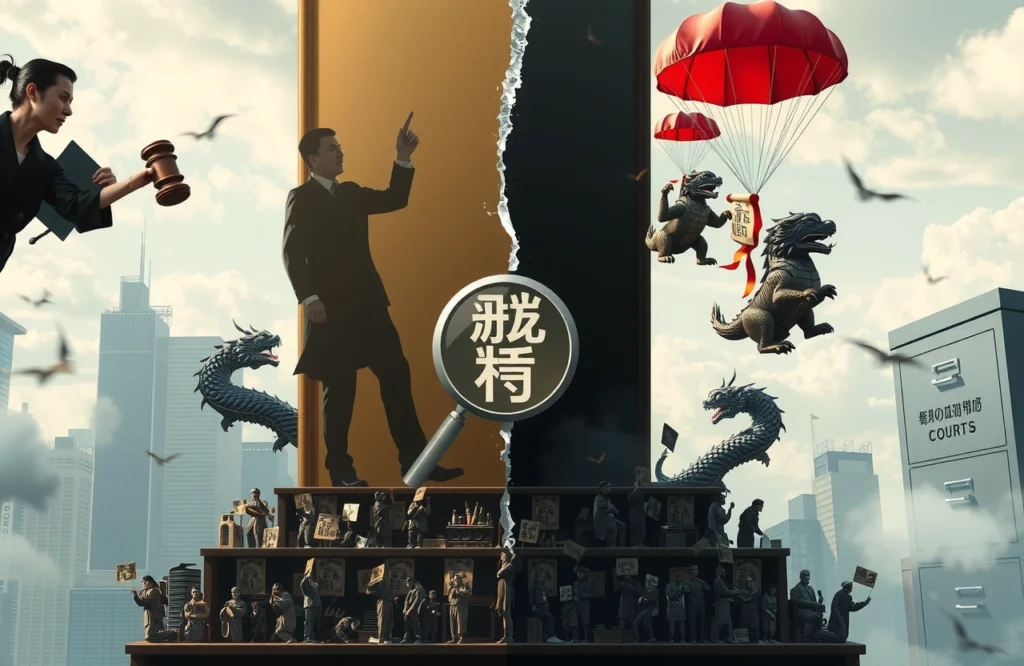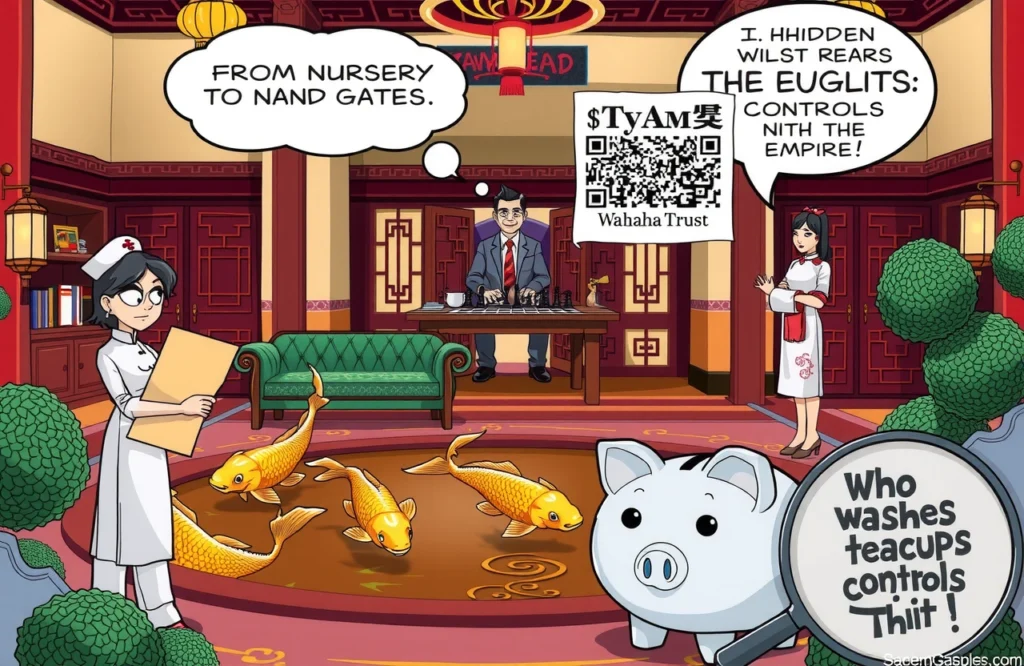The Beverage Dynasty Divided
A legal earthquake rocks China’s business world as Hong Kong’s High Court becomes ground zero for a dynasty-defining battle over Wahaha Group’s $35 billion fortune. Three claimants—Jacky Zong (宗继昌), Jessie Zong (宗婕莉), and Jerry Zong (宗继盛)—have filed lawsuits asserting they’re half-siblings of Wahaha heiress Zong Fuli (宗馥莉) and demanding inheritance rights. The explosive contention? That late founder Zong Qinghou (宗庆后) established $21B trust funds destined for them.
Trust Funds Frozen
Court filings revealed Zong Qinghou allegedly instructed subordinates to establish $7B trust funds per child through HSBC Hong Kong. Plaintiffs seek immediate injunction against asset dispersal after documenting $788M disappeared from accounts since January 2024—money Zong Fuli contends funded Vietnam factory equipment. Despite DNA testing requests using Zong Qinghou’s 2023 blood samples, Wahaha dismisses the feud as “internal family affairs.” Yet shareholder registries confirm the claimants’ corporate foothold:
- Jacky Zong: Director at 5 subsidiaries including Nanjing Wahaha Beverage
- Jessie Zong: Joined Shenyang Wahaha Rongtai Food in 2022
- Jerry Zong: No current directorships
The Hidden Matriarch Emerges
Central to the inheritance battle is Du Jianying (杜建英), former Wahaha executive and purported mother of the claimants. Whispers within Hangzhou business circles describe the 78-year-old as the empire’s invisible architect. Insiders reveal her pivotal role:
The Power Behind the Throne
“Du engineered Wahaha’s expansion blueprint,” states a former operations manager. “She structured the IT systems, designed management protocols, and personally resolved the Danone litigation.” Her influence extends through Shanghai-based Sanjie Investment Group where she spearheads biotech ventures. Corporate records confirm ongoing directorships in 11 Wahaha affiliates despite her formal retirement.
Forbes estimated Zong Qinghou’s personal wealth at $14B before death—29.4% ownership representing just the iceberg tip of Wahaha assets spanning:
- 81 production bases across China
- 187 subsidiary companies
- Zhejiang Qili Investment (60% holding)
- Hangzhou Zongcheng Group (family holding firm)
Restructuring Under Siege
Since inheriting leadership in August 2024, Zong Fuli maneuvered aggressively to disentangle Wahaha from her father’s legacy. Her restructuring strategy ignited employee unrest:
The Purge Settlement
- Forced transfer of 17,000+ staff to Hongsheng Group contracts
- Year-end bonuses slashed 50-70% for non-transferred employees
- 18 factories shuttered—including claimants’ director sites
Most explosively, investigators uncovered Wahaha bottled water carries hidden costs: third-party plants like JMate (今麦郎) receive just 18¢/bottle manufacturing fees while Hongsheng pockets 68% margins. This accounting pipeline potentially diverted billions beyond Wahaha’s official balance sheets.
The Trademark Gambit
February 2025 saw Zong Fuli attempt transferring 387 Wahaha trademarks worth $90B from group ownership to her personal holding company. Though public backlash forced retreat, legal documents obtained by Caijing confirm clawback clauses already filed in Zhejiang courts.
Courtroom Domino Effect
The inheritance fight now unfolds on parallel fronts:
- Hong Kong: Asset freezing orders for HSBC trusts
- Hangzhou: Equity partition lawsuit for 29.4% stake ($200B+)
Industry analysts warn protracted litigation risks unseating Wahaha from China’s beverage hierarchy—Nongfu Spring commands 25% market share while CR C’estbon gained second position early this year.
Blueprint For Avoiding Dynasty Wars
“This tragedy stems from governance failure,” observes Dr. Bai Wenxi of China Enterprise Capital Alliance. His preventative prescription:
- Establish family committees with rotating authority
- Formalize inheritance conditions within binding dynastic charters
- Implement annual third-party asset valuations
The powеr vacuum coincides with commercial vulnerability. Despite Wahaha’s reported $7B revenue surge under Zong Fuli, insider filings show actual YoY growth at 11%—not her claimed 40%. With litigation likely dragging into 2026, this cautionary tale of dynasty capitalism reaffirms that empires crumble fastest when blood turns against blood.




